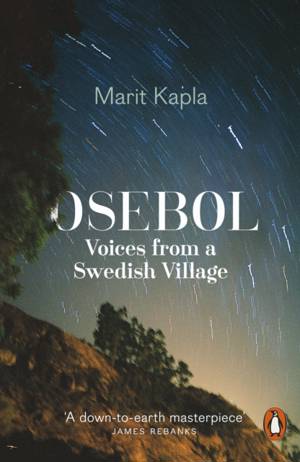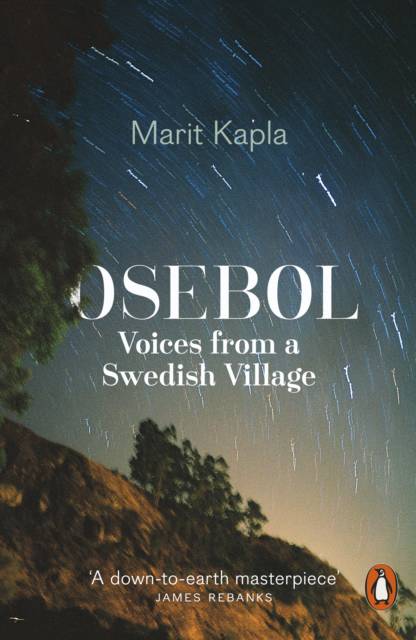
- Afhalen na 1 uur in een winkel met voorraad
- Gratis thuislevering in België vanaf € 30
- Ruim aanbod met 7 miljoen producten
- Afhalen na 1 uur in een winkel met voorraad
- Gratis thuislevering in België vanaf € 30
- Ruim aanbod met 7 miljoen producten
Zoeken
Omschrijving
Winner of the 2019 August Prize Near the river Klarä lven, snug in the dense forest landscape of northern Vä rmland, lies the Swedish village of Osebol. It is a quiet place: one where relationships take root over decades, and where the bustle of city life is replaced by the sound of wind in the trees. In the last half-century, the automation of the lumber industry and the steady drip of relocations to the cities for work have seen Osebol's adult population dwindle to only 40-odd residents. The shops have closed; the bridge across the river is shut to traffic. But still, life goes on. Those who have inherited their farms for generations live alongside recent arrivals from near and far. People age; children grow up. Heirlooms are passed from hand to hand, and memories from mouth to mouth. In this extraordinary book, Marit Kapla has gathered the voices of the villagers themselves, interviewing almost all of those remaining between the ages of 18 and 92. They alone speak. Arranged with only a handful of lines on each page, they tell of their griefs and joys, resentments and pleasures, enmities and loves, and memories that span a century of progress and upheaval. To read Osebol is to be immersed in its gentle rhythms of simple language and open space, and to emerge feeling like one has really grown to know the inhabitants of this varied community, nestled among the trees in a changing world.
Specificaties
Betrokkenen
- Auteur(s):
- Vertaler(s):
- Uitgeverij:
Inhoud
- Aantal bladzijden:
- 800
- Taal:
- Engels
Eigenschappen
- Productcode (EAN):
- 9780141994499
- Verschijningsdatum:
- 3/02/2023
- Uitvoering:
- Paperback
- Formaat:
- Trade paperback (VS)
- Afmetingen:
- 129 mm x 198 mm
- Gewicht:
- 553 g

Alleen bij Standaard Boekhandel
+ 41 punten op je klantenkaart van Standaard Boekhandel
Beoordelingen
We publiceren alleen reviews die voldoen aan de voorwaarden voor reviews. Bekijk onze voorwaarden voor reviews.











